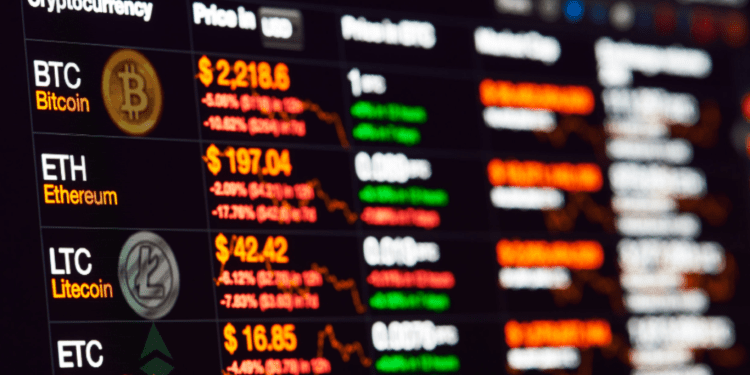The US banking system will only become more isolated as a result of the surgical removal of cryptocurrencies, which will also damage the dollar’s status as the world’s reserve currency.
- The United States’ regulatory onslaught on cryptocurrencies and crypto businesses might hinder innovation in space and harm the nation’s standing in international trade.
- The latest legal moves against cryptocurrency companies may drive future innovation, offshore investment, and related jobs to nations like Singapore, Hong Kong, and Australia.
U.S. Crackdown on Crypto
Industry experts caution that the United States’ approach will only hinder innovation in the field of cryptocurrencies and harm the country as it continues its crackdown on cryptocurrencies and crypto businesses. Just one month after stablecoin-issuer Paxos received its own Wells notification, the Securities and Exchange Commission recently delivered Coinbase, the cryptocurrency exchange, a “legal threat” or Wells notice. Some suggest there could be more to come.
U.S. Regulators Unfriendly to Crypto
U.S. officials have been hostile to cryptocurrencies “from the beginning,” claims Mati Greenspan, the crypto research firm Quantum Economics CEO. Some people believe that the recent bank failures of crypto and startup-friendly institutions, such as Silvergate, Silicon Valley Bank, and Signature Bank, were a part of “Operation Choke Point 2.0,” a government plan to un-bank the cryptocurrency industry.
The Surgical Removal of Crypto to Weaken USD Dominance
Greenspan thinks that the anticipated move against cryptocurrencies may already be in motion since they are considered a “challenge” to the U.S. dollar’s hegemony in international trade, which has long been advantageous to the U.S. Nevertheless, as more individuals throughout the world start using cryptocurrency for cross-border remittances, a crackdown on cryptocurrency in the U.S. may have the reverse effect on the dollar: “The U.S. banking system will only become more isolated as a result of the surgical removal of cryptocurrencies, which will also damage the dollar’s status as the world’s reserve currency.”
The White House Should Review the Banking Industry
According to Adrian Przelozny, CEO of Australian cryptocurrency exchange Independent Reserve, banks managing their risks in an “irresponsible way” was to blame for the recent problems in the banking industry rather than “any failure in crypto.” He continued by saying that it would be better for the White House to examine banking industry practices.
Adversarial Environment for Crypto in the US
Przelozny claimed the “adversarial environment for the crypto business” in the U.S. would drive the related “jobs, investment, and future innovation” abroad while discussing the most recent move against Coinbase. According to Przelozny, countries that “will reap the economic benefits” from the crypto business include Singapore, Hong Kong, and possibly Australia.
Regulation by Enforcement Model
“This is a strange choice to make given the setbacks many faced in the last year arose from crumbles involving unchecked offshore structures,” said Michael Bacina, a partner at Piper Alderman and lawyer who agreed that a “regulation by enforcement model” would “drive crypto-asset innovation offshore.”
Industry Asking for Clarity on Compliance
According to Bacina, the business has long demanded clarification on how to comply correctly. He cited the recent “telling” remarks made by the bankruptcy judge in the instance of Voyager Digital, who “recognized that there is no clear advice from regulators.” He continued that offshore jurisdictions will keep hosting cryptocurrency enterprises until governments spell out the road to regulatory compliance, “which will cost employment and enhance the risk for consumers and investors.”
Conclusion
The U.S.’s crackdown on cryptocurrencies and cryptocurrency companies will hinder industry innovation and undermine the nation. Analysts worry that the U.S. dollar’s status as the world’s reserve currency will be weakened if the U.S. is further isolated by excluding cryptocurrencies from its banking system. A lack of regulatory guidelines would push the development of crypto assets offshore, potentially costing employment and increasing risks for consumers and investors. The sector has long called for clarity on compliance.














